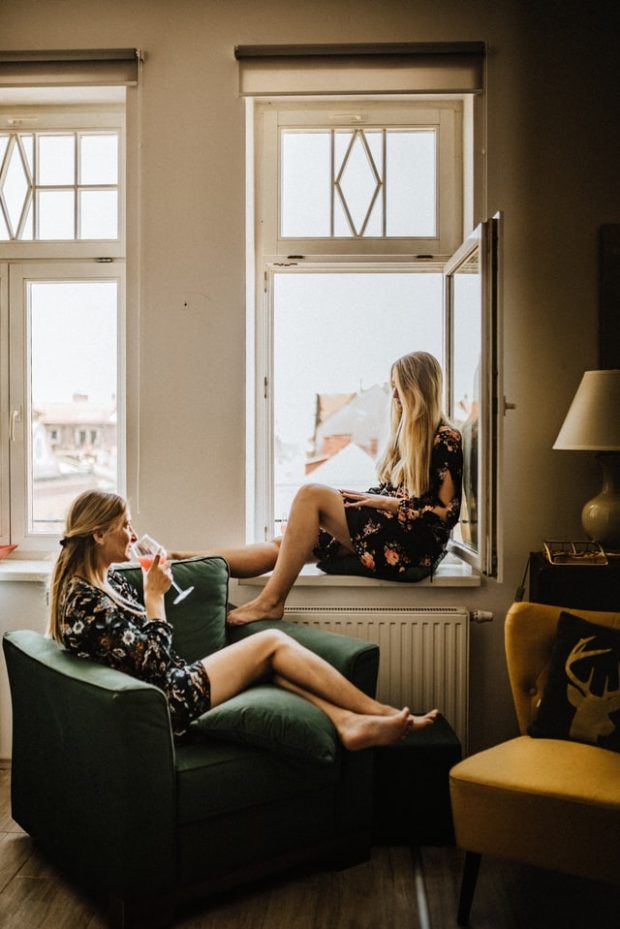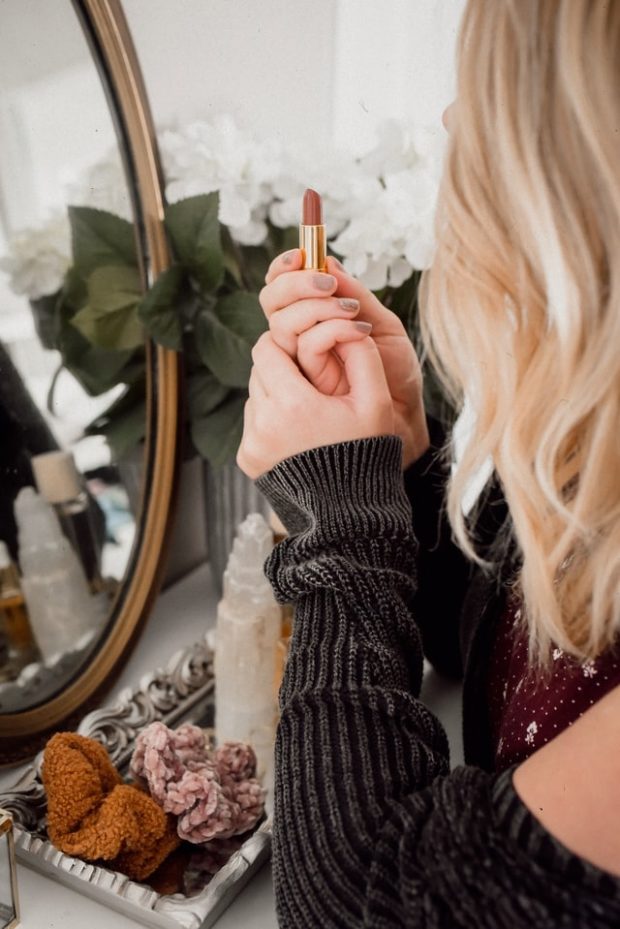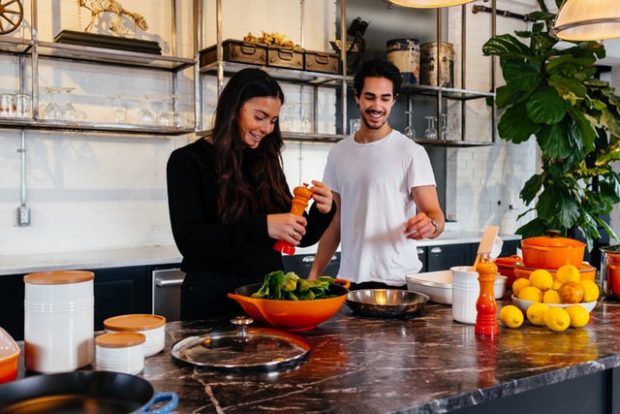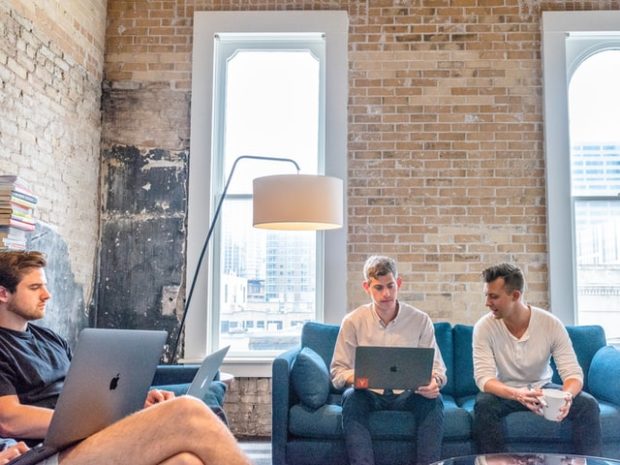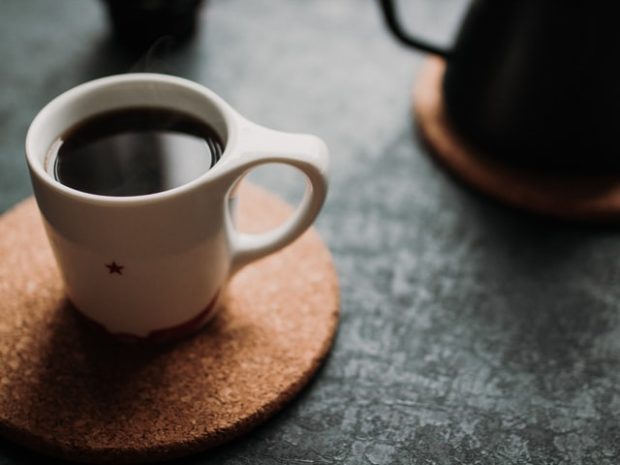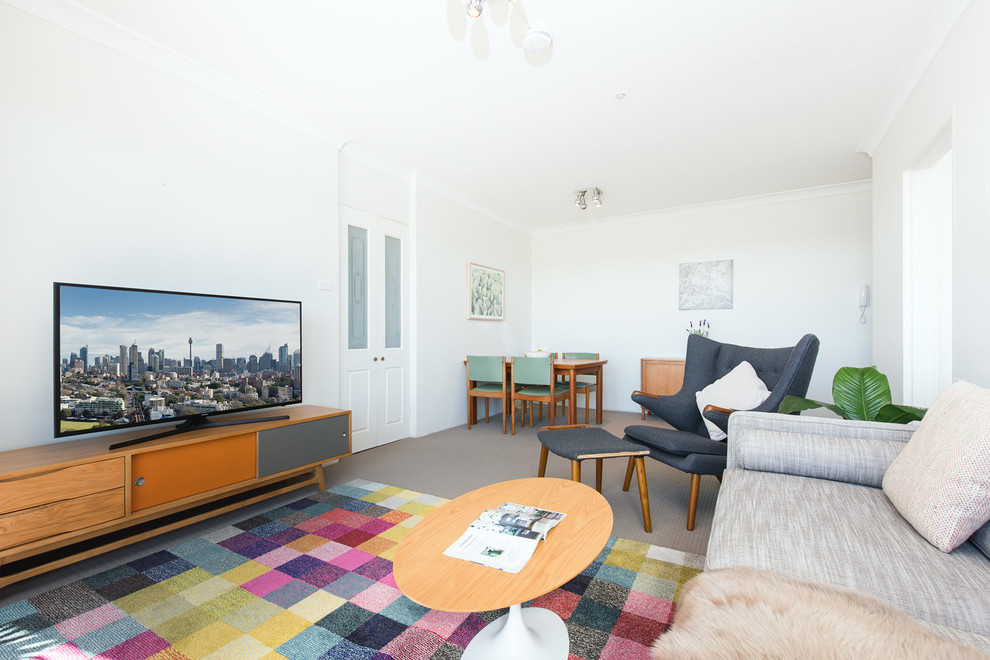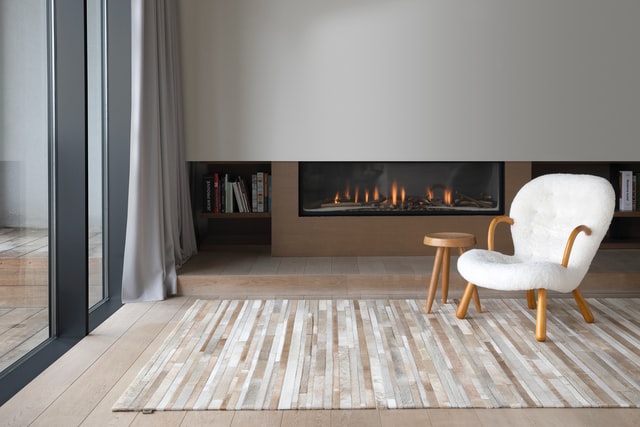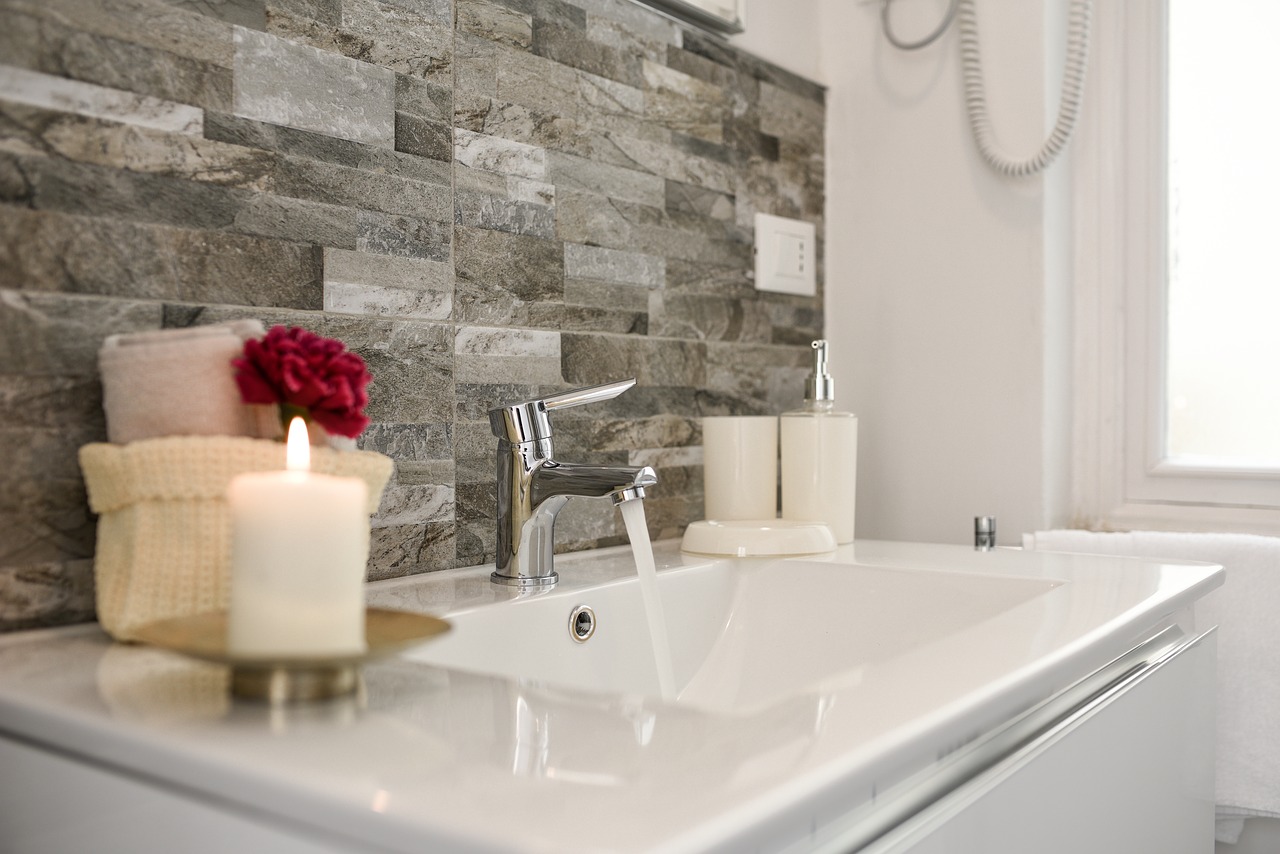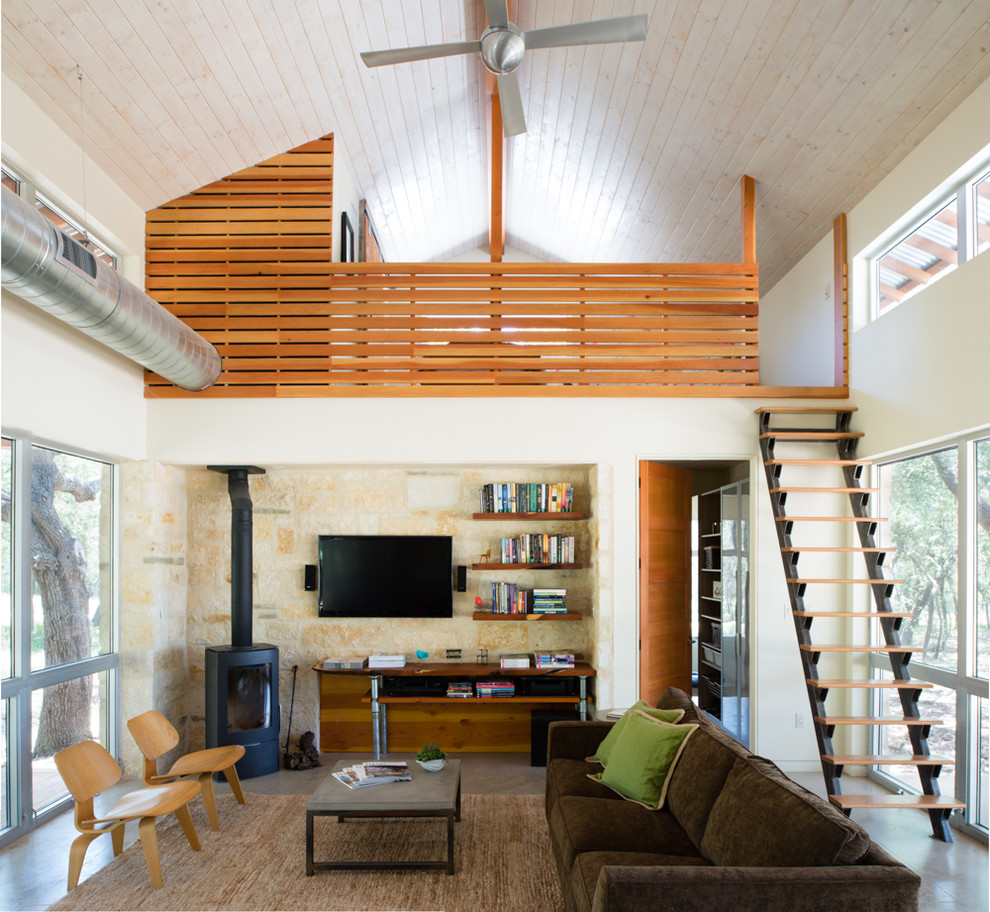With summer upon us, and social distancing restrictions lifted across the UK, many of us are revelling in the chance to spend time with our friends and families again.
And what better way to do that than sitting around a dinner table, sharing a bottle or two of wine and some beautifully-cooked food?
For some of us though, the prospect of hosting — while exciting — may also seem a little daunting. After all, it’s been months since we were allowed anyone other than ourselves in our homes.
Fortunately, we’ve put this guide together for those of us who might be feeling the pressure, and wondering where to start with getting their house ready for guests.
Leave room to move
We hear interior designers talk about ‘flow’ a lot.
This concept refers to a person’s ability to easily move through a space, and access everything they need within that space in the most straightforward and methodical way possible.
The most simple way to describe this would be, when choosing where to place your kitchenware, placing the teaspoons, mugs, kettle and tea and coffee nearby to one another – rather than in different places around the kitchen. That way, a person can easily ‘flow’ through the process of making a hot drink, without having to go back and forth as often.
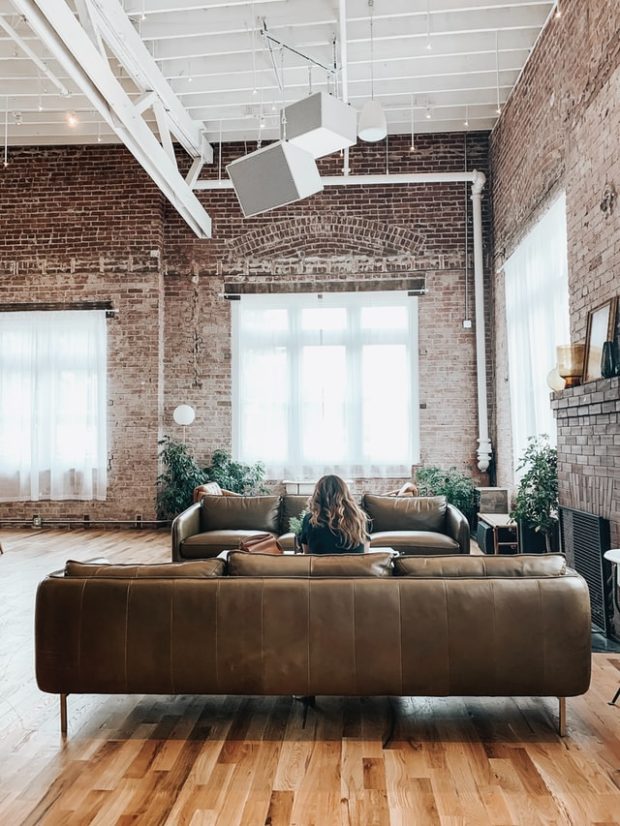
When decorating your home — and especially when thinking about hosting guests — you should think about providing a good ‘flow’ in each room.
The first step to this is to provide plenty of space for guests. In entrance-ways, try to avoid having coat racks, rails or shoe racks in places that will obstruct a person’s ability to move into your home. Equally, don’t place large furniture pieces in walkways if the area is already narrow. If you want a place to put down or store items in your entrance hall, opt instead for a narrow console table. These are ideal for thin hallways, as they can be easily placed over things like radiators and provide somewhere to put keys, mail or slip shoes underneath.
People need to put things down!
This one is highly important, and something that many people miss when thinking about how to set up their living room for hosting.
Some people make the mistake of thinking that having more space for people to move (which is important) means simply moving everything out of the room and leaving very little furniture.
However, in practice this means that guests are left holding drinks and plates of food without anywhere to balance things. This can be awkward, and can really detract from their ability to talk to one another or properly relax.
To combat this, incorporate small pieces of furniture such as small side tables, coffee tables or even bar tables. These take up far less space than a full dining or kitchen table, while still providing guests with a place to put down and leave things such as plates or glasses while they move through the room.
If you are concerned about the cost of this, consider building your own tables rather than buying new. This is not only a less expensive option, but self-made furniture can be a great way to start conversations — particularly if you use a striking material for the table top, like upcycled or raw wood.
Use screws to easily attach 3 – 4 hairpin table legs (depending on the shape of your table top) about 2 ½ inches inwards from the edge.
Remember: people are vain
People are vain — it’s a fact. They like to check how they’re looking — touch up their lipstick, make sure there’s nothing in their teeth. And this is especially true when people are in company.
And the same applies to your guests. Give your guests the comfort of vanity by placing plenty of mirrors around your home.
If you can, include a mirror in front and back entrance-ways, as this gives people a chance to ‘sneak off’ to check themselves out.
Focus on functionality
Whenever you’re getting your home ready for guests, don’t forget to focus on functionality as well as aesthetics.
Of course, it’s important that your home looks beautiful if you’re having friends or family over, especially for an occasion. But don’t sacrifice functionality for this. When getting your home ready ask yourself:
In kitchens, provide plenty of disposal areas. This may sound [simplisitic], but it’s something that many hosts forget to include as they feel bins can be cumbersome and detract from the elegance of their home. A great, budget-friendly way to do this without disrupting the look of your party area, or getting in the way, is by adding ‘pop-up’ bins. If you’re thrifty, you can make these yourself using a cardboard box with the lid removed and different coloured paints to indicate what each bin is for. Alternatively, you can buy pre-made versions, which you assemble yourself. These are also inexpensive.
If you’re hosting friends overnight, it’s even more important to bear functionality in mind. Guest bedrooms often have limited space, as the smallest bedroom in the house is usually attributed to the role, or they’re multi-purpose rooms like home offices or walk-in-wardrobes.
To make sure that your overnight guests are comfortable, use multi-purpose furniture. For instance, a small chest of drawers could function as a bedside cabinet, and take up much less space than using a full set of drawers (which 1-night guests don’t need) as well as a bedside table.
Equally, rather than adding a whole wardrobe (or clearing out your current one) add over-the-door hooks to doors, or, alternatively, add 2- 4 single wall hooks to walls instead. This gives your guests somewhere to hang their bags, jackets and shirts, and both options are much less expensive or time-consuming than a full wardrobe.
Upcycle, upcycle, upcycle
Upcycling can be a great way to add unique talk-pieces to your home, without breaking the bank.
Try sanding down and adding wood stain and varnish to cuts of raw wood, to create unique and budget-friendly coasters.
You could also try upcycling old condiment and sauce jars, or wine bottles to create cost-free flower vases. You can also fill up dark-coloured glass bottles and jars with battery powered fairy lights or candles for a beautiful home-made lantern — perfect for conservatories or gardens as the sun starts to set on your garden party.
Author Bio
Luna Williams writes for The Hairpin Leg Company, a UK-based luxury DIY provider specialising in hairpin products.

